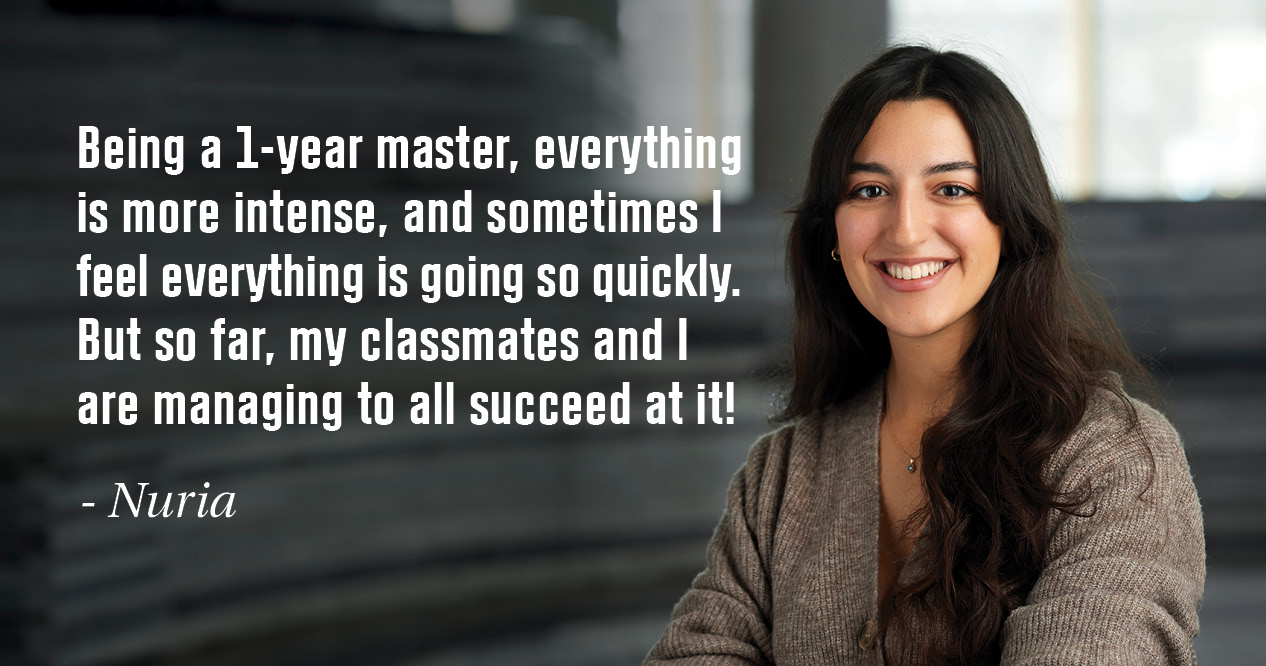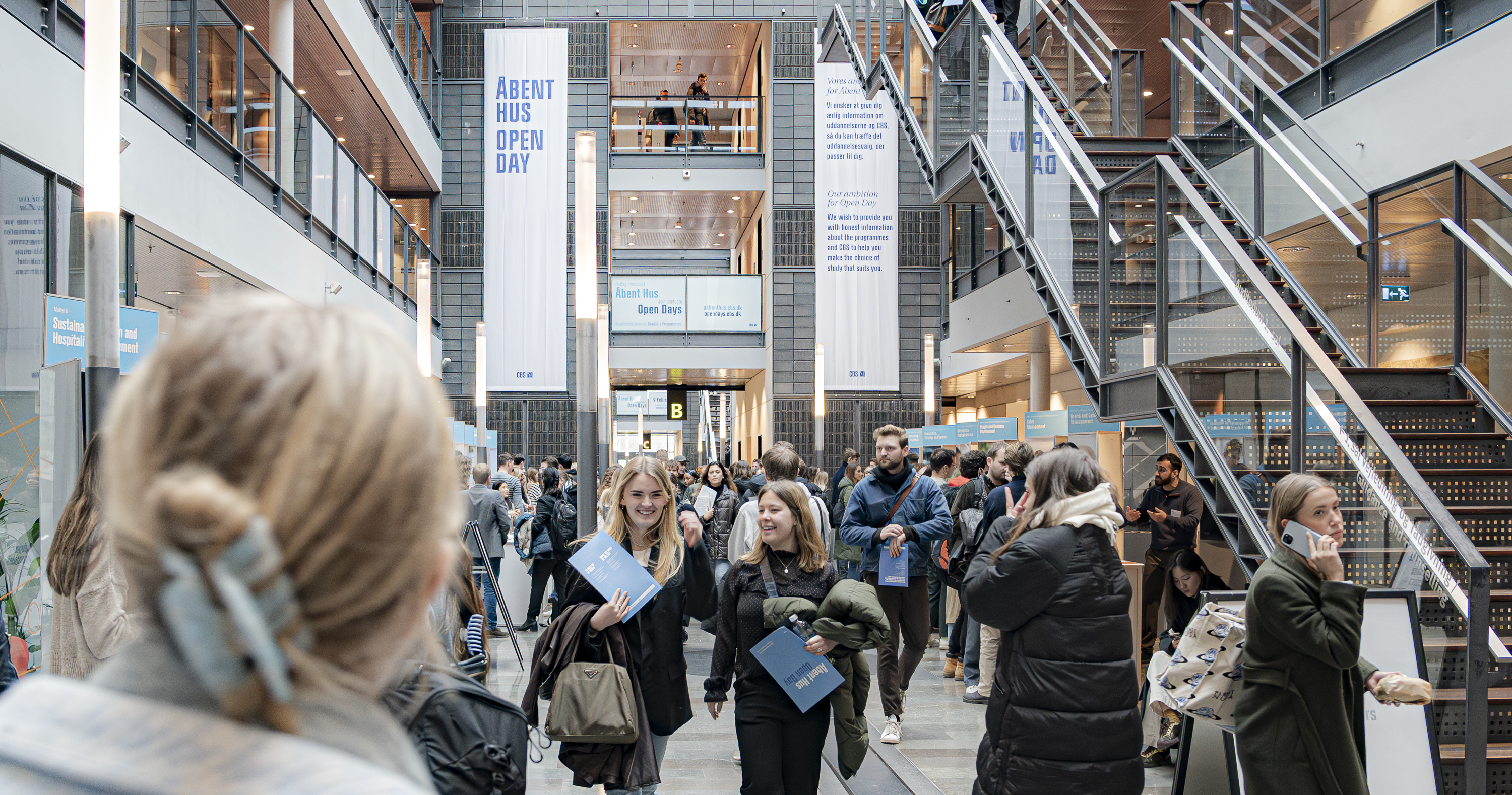Master in Sustainable Tourism and Hospitality Management
ABOUT THE PROGRAMME
Data Analysis
To make impactful and sustainable decisions, you need data-driven and analytical competences. Strategic data competencies are strongly connected to the digitalisation that takes place in all parts of our lives, including tourism and hospitality. Data analysis is a key skill set that is imperative for future entrepreneurs and employees working in tourism and hospitality industry.
Future business and governmental decisions require data-based evidence from different sources and modalities of data. Data mining and new geo-locational tracking technologies provides more sensitive and accurate tools to understand, influence and manage consumer needs and behaviour to more sustainable options.
STHM will assist you to develop quantitative method skills that are essential to deal with the data-driven transformation of the tourist and hospitality businesses
Consumer studies
On the pathway to a more sustainable industry, we need to understand and analyse what our consumers want – and how we can influence them positively to a sustainable change. Demands for tourism is thereby constantly diversifying and is also affected by other consumer markets; such are lifestyle, popular culture, leisure as well as global mobility flows. This requires more innovative and effective methods to map, predict and manage visitor flows. It needs an understanding of change management to create effective tools for the sustainable transformation.
STHM gives you an advanced insight into psychological and behavioural frameworks of tourism consumption that will cover both, analysing consumers and changing their behaviour.
Business development
Currently, the international tourism industry is undergoing rapid and profound transformations in the wake of challenges, such as digitalisation, health risk, and climate concerns, as well as emergent global markets and competitors. Tourism affects host societies in multiple ways; and simultaneously carries the seeds of prosperity and environmental degradation. Recent crises imposed practitioners to reinvent the tourism of tomorrow and capitalize on the opportunity of creating a more sustainable, resilient, and innovative sector.
STHM presents sustainable business models frameworks, that will be scrutinized with regards to their ability to ensure balanced and equitable development for communities, businesses, and the biosphere.
Collaborative approaches, such as stakeholder management are discussed in the light of sustainable development goals and local governance. You will learn to be competitive in business and compassionate in society, producing prosperity and protect the prosperity of the next generations.
Digitalisation
Despite the growth of digital forms of communication, big data mining, digital business models, and online transactions in several service sectors, many tourism businesses still lag in terms of digital innovations. STHM also addresses this enduring challenge digital transitions. In particular, courses will focus on digital communication, as well as digital changes in business models and value chains. A data-driven analysis of value chains and business relationships may also identify new entrepreneurial opportunities. You will also acquire skills to management of digital transformations, ranging from radical digital disruptions to initiating incremental improvements with digital devices and virtual experience formats.
Sustainable Management
Sustainability is a foundational feature that runs through the entire programme. You will learn about different traditions and approaches to sustainable management, embracing ecological, ethical, and social considerations. You will understand ethical dilemmas and have the leadership values to overcome them.
Studying in English
If you do not have a bachelor’s degree taught in English, we recommend that you read more about what to consider before applying for an English taught programme.
Student life at CBS
Studying at CBS is much more than just preparing for and going to classes.
At CBS, there are more than 20,000 students with different backgrounds and nationalities. Teamwork is an essential part of studying at CBS both in classes and in extracurricular activities.
With more than 100 student organisations, you also have plenty of opportunities to engage and connect with students across programmes and classes.
Learn more about the vibrant student life at CBS, the student organisations, and the international environment on Student life
For internationals
If you are an international student, we have gathered a lot of information about what it is like to be an international student at CBS and how you can prepare for life in Denmark.
Read more on For internationals
Teaching
The teaching activities are diverse and innovative. They include real-life company cases, fieldtrips, innovation projects, data hackathons and other group-oriented learning modules.
The focus lies in enabling you to use research-based scientific knowledge and methods to solve real-life business and societal challenges.
A close collaboration with the tourism and hospitality industry is a basis for all courses – increasing your critical thinking and constructive ways of collaboration. STHM also highly relies on collaborative work tasks and group work which will enable you to relearn, constant exchange, and by teaching others to do the same.
Read more about Teaching and working methods on Student life
Exams
At CBS each course is concluded with an examination. This means that you will have exams after each quarter. STHM uses a mix of different exam types. Exams generally aim at letting you demonstrate knowledge and skills that will be relevant to your future career.
Read more about Exams and exams types on Student life
Time consumption
You should know that it is demanding to study in a graduate programme, and both the curriculum and workload is significantly higher than at bachelor level.
If you are studying on a full-time graduate programme, you should expect spending approximately 37 hours on average on your studies each week. The workload will vary during the year.
The time leading up to assignment submissions and exams can be hectic, and you can easily work more than 40 hours a week in this period. Preparing for oral exams can be especially time consuming, because you have to be able to explain and discuss the covered concepts and theories and learn things by heart.
Read more about Time consumption on Student Life
Student job
Most programmes are quite flexible in terms of combining studies with a student job. Most students work a maximum of 15 hours a week in order to have sufficient time for their studies.
Studying in Denmark - for internationals
If this is your first time studying in Denmark, you may find teaching and exam formats, the grading scale and the academic calendar very different from what you are used to.
Read about everything you need to know as an international student studying at CBS on For internationals > Academic information
STHM is a one-year master’s programme that is divided into 4 quarters.
There is a certain degree of progression between the courses in the 1st and 2nd semester.
Student’s analytical skills established during the data hackathon-project will be further developed in the Research Design and Data Curation module.
Each elective gives you the opportunity to specialise in one of the thematic pillars of the programme:
- consumer
- digitalisation
- business development
The programme is concluded with a tourism and hospitality project thesis, where you apply and combine analytical and theoretical perspectives of the previous modules to identify, analyse and solve a practitioner’s business problem in a real-life business case.
What gets you the job?
The 1-year master of Sustainable Tourism and Hospitality Management, STHM has been developed in dialogue with representatives from Danish travel trade, hospitality and tourism organisations, and it focuses on addressing present managerial concerns with solid methodological approaches and research-driven solutions.
For an optimal competence development regarding data-driven sustainable transformation of tourism companies, STHM is designed by a unique pedagogical approach that combines business, consumer, and digital aspects in one education.
You will acquire skills and competences:
- to solve complex and ambiguous, interdisciplinary issues with regards to sustainable tourism development
- to spot societal challenges and have the entrepreneurial knowledge to help solving them
- a deep sector-specific business knowledge placed in a broader societal context
- to communicate scientifically grounded, strategic solutions based on the latest techniques and methods in data analysis – creating value from global connections for local communities
To change the tourism and hospitality industry you need two skills which you develop during the programme:
- to become a data-driven decision-making expert
- to be a specialist in change management
Competence profile
In the competence profile you can read more about the purpose of the programme and the competencies you achieve in the programme:
Competence profile for Master in Sustainable Tourism and Hospitality Management
COURSE OVERVIEW
*Choose 2 out of 3
You can read more about the programme, academic content and exams in the programme regulations for Master of Sustainable Tourism and Hospitality Management


